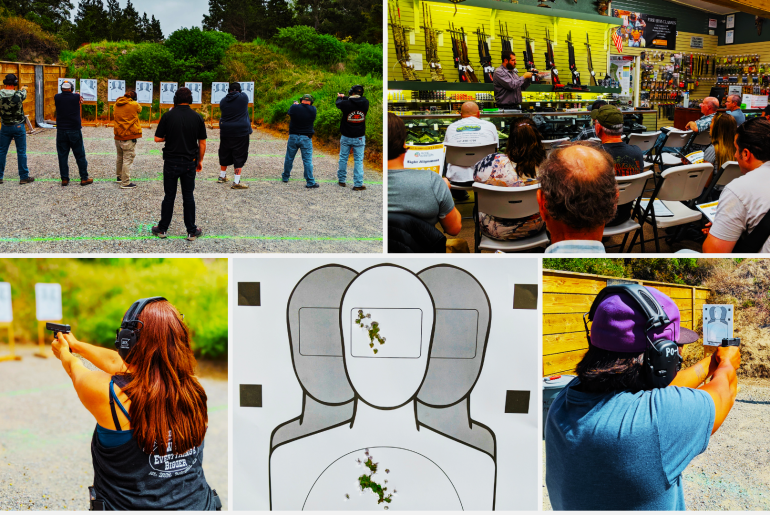In California, carrying a concealed firearm in public requires a valid Carry Concealed Weapon (CCW Licensing) license, as mandated by state law. To qualify for a CCW license, several criteria set forth by Assembly Bill 2103 and Senate Bill 2 must be met:
- Applicants must complete a minimum of 16 hours of training. This training covers various aspects, including firearm safety, handling, shooting techniques, safe storage, legal transportation and securing of firearms in vehicles, understanding of laws related to carrying and using firearms, and mental health resources.
- Applicants are required to undertake live-fire shooting exercises to demonstrate safe handling and shooting of the firearm for which they seek licensure.
- Applicants must pass a written examination.
Before the enactment of AB 2103, individuals could obtain a CCW license in California without owning a gun or undergoing any firearm safety training.
What are the requirements under Assembly Bill 2103 and Senate Bill 2?
Under Assembly Bill 2103 and Senate Bill 2, specific training requirements are mandated for all applicants seeking a Carry Concealed Weapon (CCW) permit in California. These training requirements include:
- Completion of a training course that is no less than 16 hours in length.
- The training course must cover topics such as firearm safety, firearm handling, shooting technique, safe storage, legal methods to transport and secure firearms in vehicles, laws governing where permit holders may carry firearms, laws regarding the permissible use of a firearm and lethal force in self-defense, and mental health resources.
- The course must include live-fire shooting exercises, during which the applicant must demonstrate the ability to safely handle and shoot each firearm they are applying to be licensed to carry.
- Applicants are also required to pass a written examination.
For those renewing a CCW license, the training course requirements remain largely the same but the minimum course length is reduced to eight hours.
What are the reasoning for AB 2103 and SB 2?
The rationale behind Assembly Bill 2103 and Senate Bill 2 is primarily focused on two objectives:
- Enhancing public safety;
- Reducing the incidence of unintentional shootings.
The underlying principle is that by ensuring gun owners undergo basic firearms training, the likelihood of accidents involving concealed firearms will be significantly diminished. This shift in legislative approach reflects a commitment to these safety outcomes, prompted by the limitations of California’s previous laws on CCW licenses.
